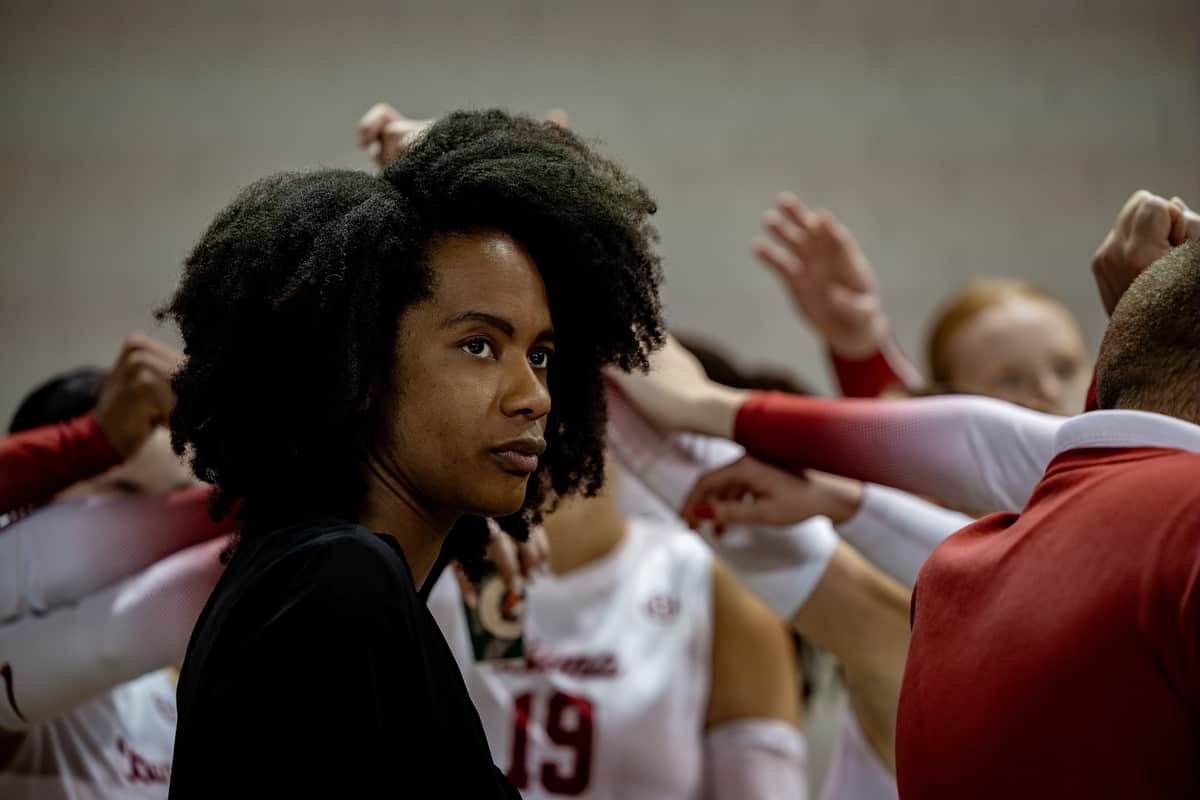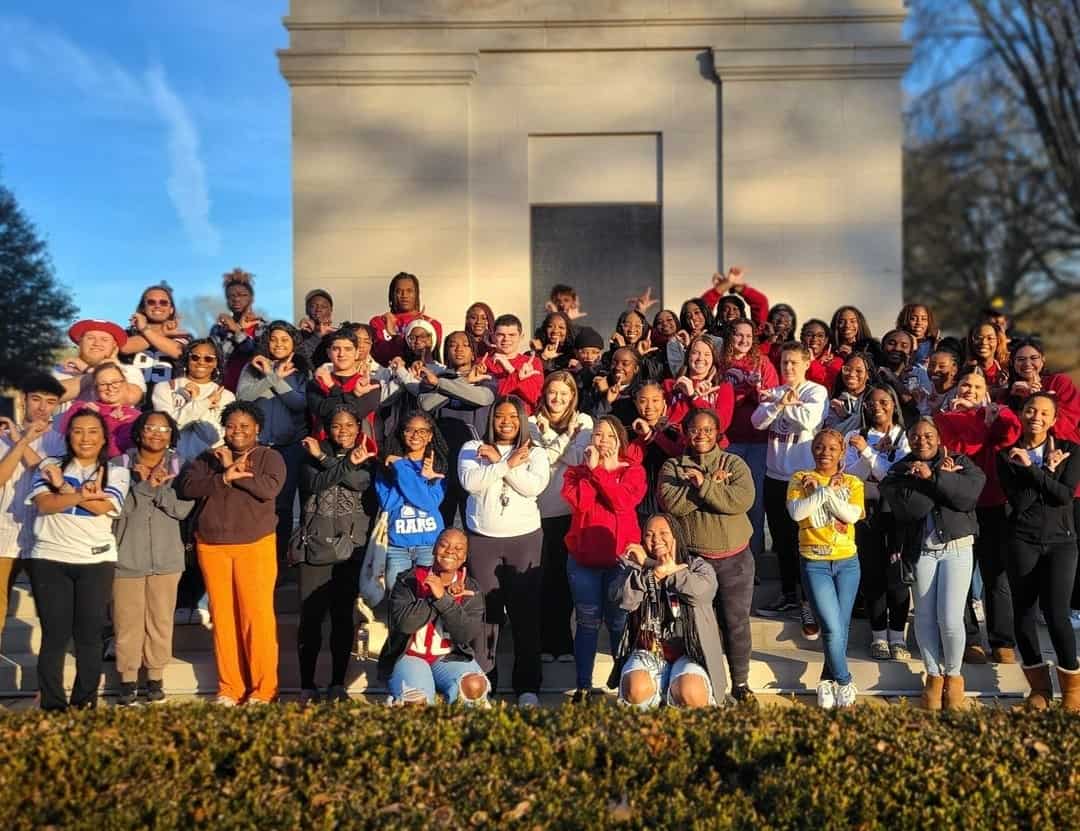Rashinda Reed, head coach of the Crimson Tide volleyball team, made history as The University of Alabama’s first Black head coach after the resignation of Lindsey Devine in December of 2021.
“It was exciting to have a new venture,” Reed said. “I’m a Georgia alum, so being able to come back to the Southern region was something I was really excited about.”
Before coaching at Alabama, Reed was the assistant coach for the University of Illinois volleyball team.
Reed played volleyball for the University of Georgia from 2002-04 and graduated with a bachelor’s degree in psychology. During her time at Georgia, her team took third place in the SEC tournament in 2002-03 and took second place in the Dutch Super Cup overseas with Longa ’59 in 2007-08.
“Her resume speaks for itself. … From our first conversation, we were drawn to Rashinda and knew she’d be an incredible addition to our coaching staff,” Greg Byrne, UA director of athletics, said.
Having played for many programs, Reed has combined each unique experience into something she can use to coach each of her athletes individually. She also played professionally for five years overseas in Austria, Spain, the Netherlands and Finland.
Diversity has been a constant topic of discussion as it pertains to collegiate sports, especially among leadership roles. According to the NCAA demographics database, in 2023, out of the 20,255 head coaches active, only 506 were Black women. Being the first Black woman to hold such a title at the University and the responsibility that brings is not lost on Reed.
“I’m representing something so much bigger than myself in addition to not just being a woman of color, but a female,” Reed said.
During Reed’s first season in 2022, the Crimson Tide was ranked in the top three in the SEC in aces and digs. Alabama also had four players — outside hitters Abby Marjama and Kendyl Reaugh, middle blocker Alyiah Wells, and libero Victoria Schmer — named to the CSC Academic All-District list in 2022, which is a program record.
As a woman of color in a career where she is in the minority, Reed hopes to inspire and empower young people not to be afraid and to keep pursuing whatever they put their minds to. One of those players inspired by Reed was Wells.
“I think it’s trailblazing to show that one of the biggest schools in the country is hiring Black women to be head coaches. She’s not in a supporting role; no, she’s it,” Wells said. “And I feel like if people see us doing it and setting that standard … it’s causing a chain reaction in volleyball, because there weren’t any Black coaches hired in SEC volleyball before her. So, I feel like it’s going to lead to just different opportunities, not only for coaching, but also for administrative roles in the future.”
Outside of the impact Reed has made on the volleyball world, she’s also made impacts a little closer to home. Wells detailed the close relationship she has with Reed and how she got not only a coach but a mentor when Alabama hired Reed.
Wells also found something she never thought she’d get in her new coach: a coach who looked like her. When coming to Alabama, she found herself as the only woman of color on the team and even in many of her classes, and because of this, Reed very quickly became someone Wells could relate to.
“There are certain things that you look for and a certain experience that you wish to have as a Black athlete. And being coached by a Black female is one of those things I never thought I would have,” Wells said. “Just because she could empathize and understand the struggles I went through and was going through as well.”
Reed’s appointment has reverberated not only throughout the SEC, but also across the collegiate volleyball landscape, etching her name in history as the first Black woman to helm the Crimson Tide’s volleyball program.









